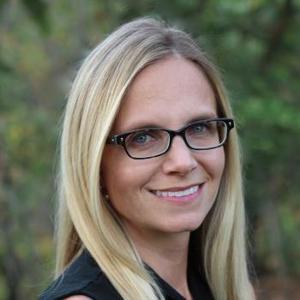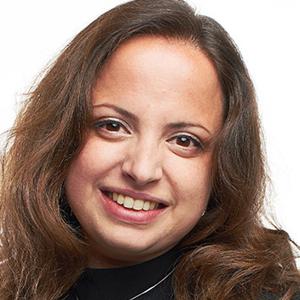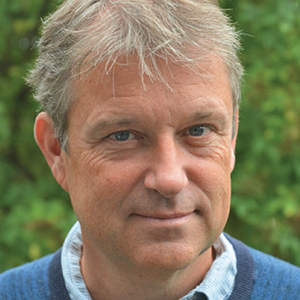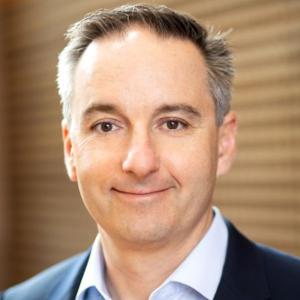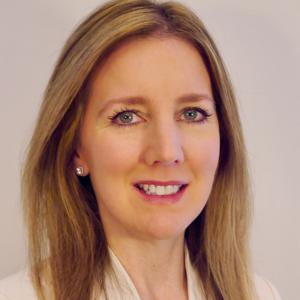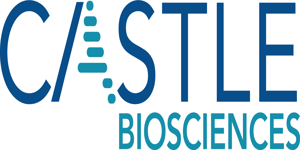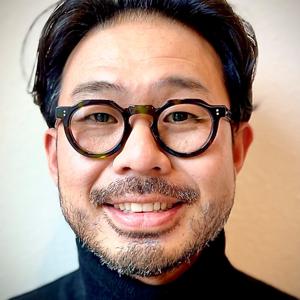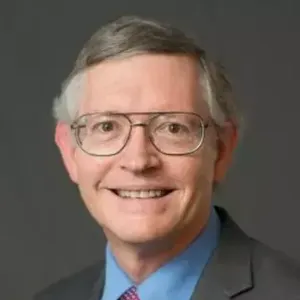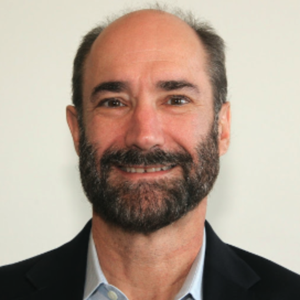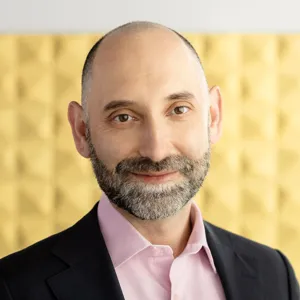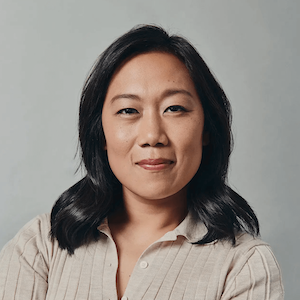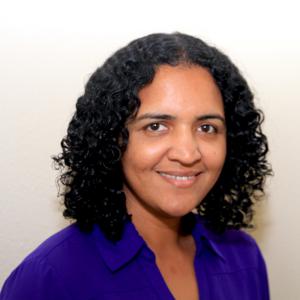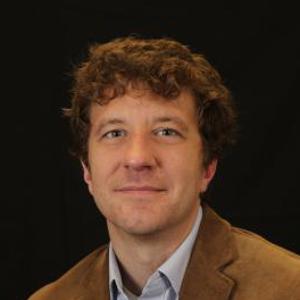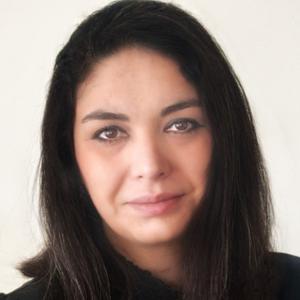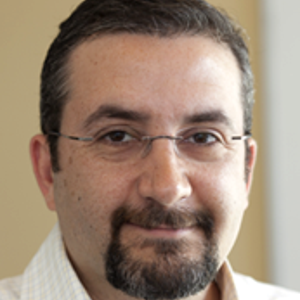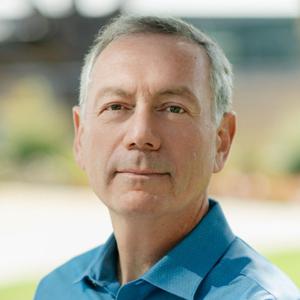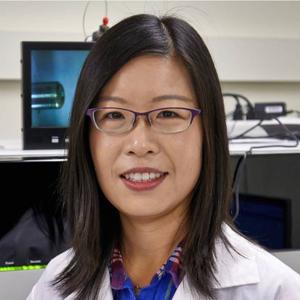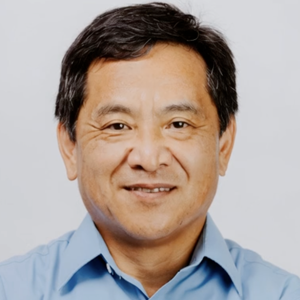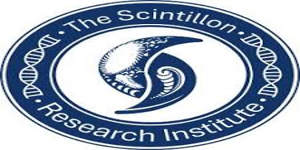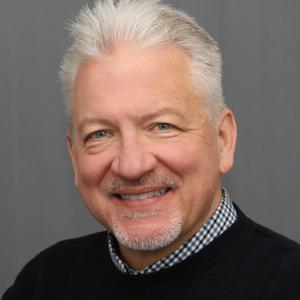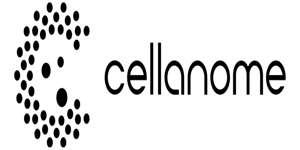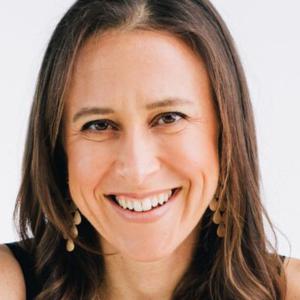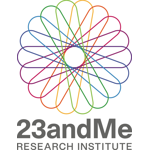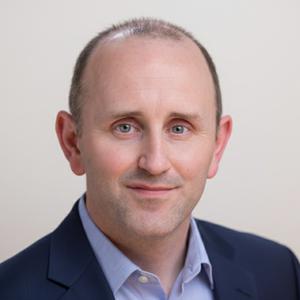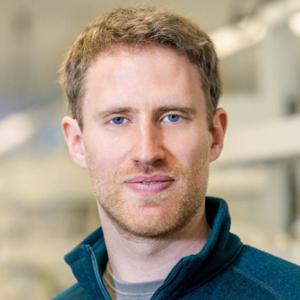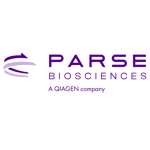Session Abstract – PMWC 2026 Silicon Valley
Track Chair:
Christina Curtis, Stanford
PMWC Award Ceremony
• W.E. Moerner, Stanford
• Serge Saxonov, 10x Genomics
• Priscilla Chan, Biohub
Honoree Fireside
• Christina Curtis, Stanford
• Priscilla Chan, Biohub
Honoree Fireside: From Measurement to Meaning: What Data AI Still Needs in Biology
• Christina Curtis, Stanford
• W.E. Moerner, Stanford
• Serge Saxonov, 10x Genomics
Unraveling Tissue Architecture with Single-Cell & Spatial Multi-Omics
• Chair: Garry P. Nolan, Stanford
• Joakim Lundeberg, SciLifeLab
• Tae Hyun Hwang, Vanderbilt University Medical Center
• Michael Angelo, Stanford
Spatial Sequencing for Next Generation Pathology
• Eli Glezer, Singular Genomics
Precision Profiling of Cells: Insights from Imaging-Spectral Flow Cytometry and Single-Cell Multiomics
• Aruna Ayer, BD
Single-Cell Genotype and Targeted Gene Expression Assay
• Zivjena Vucetic, Mission Bio
Resolving Cellular Lineage and State in Tumors with High-Resolution Single-Cell Genomics
• Gary Schroth, Cellanome
From Cellular State to Disease Gene Prediction at Population Scale
• Kyle Farh, Illumina
Tumor Evolution & Clonal Dynamics: From Models to Monitoring
• Christina Curtis, Stanford
Personal Omics at Scale: What Longitudinal Profiles Add to Early Detection
• Michael Snyder, Stanford
Multi-Omics-Driven Early Detection: Beyond Liquid Biopsy
• Chair: Alex Aravanis, Moonwalk Biosciences
• Ash Alizadeh, Stanford
• Sara Ahadi, OmicsEra
AI in Molecular Diagnostics: Integrating Multi-Omics & Clinical Data
• Chair: Marina Sirota, UCSF
• Olivier Gevaert, Stanford
• Rebecca Critchley-Thorne, Castle Biosciences
• Lihua Jiang, Stanford
• Yunguan Wang, Cincinnati Children's
Speaker Profile
Biography
Christina Curtis, PhD, MSc is the RZ Cao Professor of Medicine, Genetics, and Biomedical Data Science, Senior Vice Chair of Research in the Department of Medicine and Director of AI and Cancer Genomics at Stanford School of Medicine. Dr. Curtis's laboratory leverages computational modeling, high-throughput molecular profiling and experimentation to develop new ways to diagnose, treat and prevent cancer. Her research has redefined the molecular map of breast cancer and led to new paradigms in understanding the origins of human cancers, as well as how they evolve and metastasize.
Dr. Curtis's accomplishments have been recognized by numerous awards, including the 2018 National Institutes of Health (NIH) Director's Pioneer Award, the 2022 American Association for Cancer Research (AACR) Award for Outstanding Achievement in Basic Science, the 2024 Brinker Award for Scientific Distinction in breast cancer research and 2024 AACR - Breast Cancer Research Foundation (BCRF) Award for Outstanding Achievement in Breast Cancer Research, as well as the 2025 European Society for Molecular Oncology (ESMO) Translational Award and the Paul Marks Prize for Cancer Research. She is a Susan G. Komen Scholar, a Chan Zuckerberg Biohub Investigator, and a Fellow of the American Association for Cancer Research (FAACR).
In addition to her research, Dr. Curtis is an influential voice in the scientific, clinical and biopharma communities. She is an advisor to multiple academic institutes, as well as to biopharma and biotech. She has served on the editorial boards of journals, spanning computational biology to precision oncology, including Science, Cancer Discovery and Molecular Cancer Research. Dr. Curtis was a member of the AACR Board of Directors and is the chair of the AACR Data Science Task Force. She is also active within several clinical trial and cooperative groups, including the Alliance for Clinical Trials in Oncology, and American College of Radiology Imaging Network (ECOG/ACRIN), where she leads translational bioinformatics.
Speaker Profile
Biography
Marina Sirota is a Professor and Interim Director of UCS Fs Bakar Computational Health Sciences Institute. Previously, she served as a Senior Research Scientist at Pfizer, focusing on precision medicine. She earned her PhD in Biomedical Informatics from Stanford University. With 20 years of experience and over 170 publications, Dr. Sirota develops computational integrative methods for diagnostics and therapeutics, specializing in womens health. Her laboratory is funded by the NIA, NLM, NIAMS, Pfizer, and the March of Dimes. A 2017 A MIA Young Investigator Award recipient, she leads the UCSF March of Dimes Prematurity Research Center and co-directs ENACT, a precision medicine center for endometriosis. Dr. Sirota also founded UCS Fs AI4ALL program, which introduces high school girls to the applications of AI and machine learning in biomedicine.
Speaker Profile
Biography
Professor Joakim Lundeberg works at the Department of Gene Technology, part of the School of Engineering Sciences in Chemistry, Biotechnology, and Health, KTH Royal Institute of Technology, and has competence in molecular technology development, in the fields of spatial omics with applications in both medicine and environment. Applications cover, for example, cancer, neurology and human development. His research group has been located since May 2010 at the Science for Life Laboratory (Sci Life Lab). Prof Lundeberg previously headed the National Genomics Infrastructure (NGI) platform, one of the major academic sequencing sites in Europe. Lundeberg has over 15 patent and patent applications and has established several spin-off companies based on his research.
Speaker Profile
Biography
Alex Aravanis is CEO and co-founder of Moonwalk Biosciences. Previously Illuminas Chief Technology Officer and Head of Research Product Development, he led programs that delivered tools for research and clinicalgenomics, including whole-genome sequencing, comprehensive cancerprofiling, COVID-Seq, and advanced AI for interpreting genomes, usedworldwide today. A serial entrepreneur, Aravanis co-founded GRAIL, servingas Chief Scientific Officer and Head of RD, where he directed research, development, and clinical teams to create a multi-cancer early detectiontest. Earlier at Illumina, he developed key technologies such as clinicalRNADNA assays for fixed tissues, whole-exome analysis, single-celltranscriptomics, and liquid biopsy using cell-free nucleic acids. Aravanisearned a BS in Electrical Engineering and Computer Science with a Physicsminor from UC Berkeley, an MS and PhD in Electrical Engineering, and an MDfrom Stanford. He holds more than 30 patents, has numerous peer-reviewedpublications, and serves on biotech Scientific Advisory Boards.
Speaker Profile
Biography
Dr. Rebecca Critchley-Thorne joined Castle Biosciences in December 2021 as Vice President, RD, Spatialomics and GI, as part of the acquisition of Cernostics Inc., where she was Co-Founder and Chief Scientific Officer. She led the development of the Tissue Cypher computational pathology platform as well as the Tissue Cypher Barretts Esophagus test and its supporting clinical studies. She currently oversees RD for Castles commercially available tests and pipeline activities. She completed training as a postdoctoral fellow at Stanford University, where she focused on highly multiplexed analysis of biomarkers to understand mechanisms of immune dysfunction in various cancer types. She completed doctoral work in cancer immunotherapy at Imperial College and Cancer Research UK in London, UK, and earned a B. S. (Hons) degree in Pharmacology from the University of Sheffield, UK. Dr. Critchley-Thorne is the author of many medical and scientific publications, a principal investigator on NIH-funded research studies, and an inventor on several of Castle's patents.
Speaker Profile
Biography
Tae Hyun Hwang a national leader in the use of artificial intelligence to improve cancer diagnosis and treatment, will lead a new Molecular AI initiative within the Section of Surgical Sciences at Vanderbilt University Medical Center. He was jointly recruited by the Department of Surgery and the newly established Center for Computational Systems Biology (CCSB) at Vanderbilt University. Artificial intelligence is rapidly transforming our ability to solve complex biomedical problems, said Seth Karp, MD, the H. William Scott Jr. Professor of Surgery and chair of the Section of Surgical Sciences. Dr. Hwang is uniquely capable of developing approaches that use this technology to personalize the care of surgical patients, with an initial emphasis on oncology and transplantation, Karp said. Hwang joins the Vanderbilt faculty as a professor of Surgery. He was recruited from the Mayo Clinic in Jacksonville, Florida, where he built and led the AI in Oncology Research Program. His work focused on leveraging AI and machine learning to advance precision oncology, immuno-oncology and cellular cancer therapy.
Speaker Profile
Biography
W. E. (William Esco) Moerner, the Harry S. Mosher Professor of Chemistry and Professor by courtesy of Applied Physics, has conducted research in physical chemistry, biophysics, and the optical properties of single molecules, and is actively involved in the development of 2D and 3D super-resolution imaging for cell biology. Imaging studies include viral RNA and proteins in infected cells, protein superstructures in bacteria and mammalian cells, and studies of chromatin organization. Using powerful microscopes optimized for tracking of single objects in cells, the motions of proteins, DNA, and RNA are being measured in three dimensions in real time to understand organization, processing and binding interactions. A previous research area concerns precise analysis of photodynamics of single trapped biomolecules in solution, with applications to photosynthesis, protein-protein interactions, and transport measurements. Born on June 24, 1953 at Parks Air Force Base in Pleasanton, California, Professor Moerner was raised in San Antonio, Texas. He attended Washington University as a Langsdorf Engineering Fellow, graduating in 1975 with degrees in Physics and Electrical Engineering (both B. S. with top honors), and Mathematics (A. B. summa cum laude). His doctoral research in physics at Cornell University (M. S. 1978, Ph. D. 1982) employed tunable infrared lasers to explore infrared vibrational modes of impurities in crystals. In 1982, he moved from New York to San Jose, California to join the IBM Research Division developing spectral holeburning for frequency domain optical storage and photorefractivity for dynamic hologram formation. After 13 years at IBM, Dr. Moerner accepted a position as Distinguished Professor of Physical Chemistry at UC San Diego, where he broadened his research to include biological systems and biophysics. Recruited to the Stanford Chemistry Department faculty in 1997, he served as Chair of the department from 2011 to 2014. Professor Moerners scientific contributions were recognized with the 2014 Nobel Prize in Chemistry "for the development of super-resolved fluorescence microscopy." One method to surpass the optical diffraction limit (PALMSTORM) uses single-molecule imaging combined with an active control mechanism to keep the concentration of emitting molecules at a very low level, followed by sequential localization to reconstruct the underlying structure. The fundamentals of this idea came from early work in the Moerner lab: optical detection and imaging of single molecules (1989) combined with blinking and switching at low temperature, as well as the discovery of optical control and blinking of single copies of green fluorescent protein at room temperature (1997). Among many other honors and awards, Professor Moerner was elected fellow of the American Physical Society, Optical Society of America, American Association for the Advancement of Science, American Academy of Arts and Sciences, SPIE; and member of the National Academy of Sciences. Today, the Moerner Laboratory uses laser spectroscopy and microscopy of single molecules to probe biological processes, one molecule at a time. Primary thrusts include development and application of fluorescence microscopy far beyond the optical diffraction limit by PALMSTORM, 3D single-molecule tracking in complex cellular environments, invention and validation of methods for precise and accurate 3D optical microscopy in cells, and imaging of viral RNA and proteins during cellular infection by SARS-CoV-2 viruses. Through a variety of collaborations, these approaches are applied to explore protein and oligonucleotide localization patterns in mammalian cells and bacteria, define the organization of cell invasion proteins in parasites such as Toxoplasma gondii, and develop correlative super-resolution optical imaging with cryo-EM enhanced by suitable switchable fluorescent proteins for 77K. Please visit the Moerner Lab home page for more information.
Speaker Profile
Biography
Michael Snyder is the Stanford W. Ascherman Professor and the Director of the Stanford Center of Genomics and Personalized Medicine. As a pioneer of Precision Medicine, Dr. Snyder has invented many technologies enabling the 21st century of healthcare including systems biology, RNA sequencing, and protein chip. Dr. Snyder has initiated the Big Data approach to healthcare through his work using omics to detect early-stage disease, including wearables to detect infectious diseases like COVID-19, and at-home microsampling to measure hundreds of molecules from a single drop of blood. He is the first researcher to gather petabytes of data on individuals, which is 1 million - 1 trillion times more data than the average clinician collects. He has published over 900 papers and is one of the most cited scientists. In terms of commercial success, Dr. Snyder has co-founded 17 companies (including 2 unicorns) with combined enterprise value of over $6 billion.
Talk
Our present healthcare system focuses on treating people when they are ill rather than keeping them healthy. We have been using big data and remote monitoring approaches to monitor people while they are healthy to keep them that way and detect disease at its earliest moment presymptomatically.
Speaker Profile
Biography
Serge Saxonov is the co-founder and CEO of 10x Genomics, a leader in single cell and spatial biology. 10x’s mission is to accelerate the mastery of biology to advance human health. Under Serge’s leadership, 10x has delivered groundbreaking products that have transformed how researchers explore biology. These tools and technologies have been cited in more than 10,000 high-impact publications and have enabled discoveries across nearly every area of life sciences.
As a scientist, inventor and entrepreneur, Serge guided 10x from an early-stage startup through one of the fastest revenue ramps in the industry’s history to its public debut on Nasdaq (TXG), and has since led the company’s continued growth and innovation. Before 10x, he was part of the founding team at 23andme, where he pioneered the company’s core technology and product concepts, and later served as Vice President of Applications at Quanta Life, which was acquired by Bio-Rad.
Serge’s leadership and entrepreneurship have been recognized by Goldman Sachs, which named him one of its “100 Most Intriguing Entrepreneurs” in 2016, and by the San Francisco Business Times, which honored him as one of the Bay Area’s “Most Admired CE Os” in 2021. He earned his A. B. in Applied Mathematics from Harvard College and his Ph. D. in Biomedical Informatics from Stanford University.
Speaker Profile
Biography
Priscilla Chan is the co-founder of Biohub, where she leads efforts to advance biomedical research and technology to help scientists cure, prevent, or manage all disease. As a pediatrician, her firsthand experience caring for patients has fueled her commitment to accelerating scientific discovery. Priscilla’s leadership focuses on harnessing AI, building cutting-edge research tools, and funding innovative science to unlock new insights into human biology. She earned her bachelor’s degree in biology from Harvard University and her doctor of medicine from the University of California, San Francisco, where she also completed her pediatrics residency.
Speaker Profile
Biography
Aruna Ayer is the VP, Multiomics, Innovation Scientific Affairs at BD Biosciences. She leads a multidisciplinary team responsible for an exciting portfolio of next-generation single-cell solutions including instruments, multiomic assays, reagents and informatic solutions. Her team is also responsible for managing external scientific partnerships and collaborations supporting product development and product adoption. Aruna holds a Ph. D. in Cellular and Molecular Biology from the University of Texas, Austin and bachelors in biotechnology from Anna University, India. Aruna joined BD Biosciences from Roche Sequencing Solutions, where she held various roles of increasing leadership responsibility for 7 years developing the Roche Nanopore Sequencing Technology. Aruna is a named inventor on multiple patents and has published in multiple high-impact scientific journals.
Talk
Cellular analysis is a cornerstone of discovery in immuno-oncology and drug development. Herein, we present technologies and applications that showcase high-dimensional characterization of cells, with real-time image-based spectral sorting and multiomic single-cell profiling. This demonstrates the power of combining phenotypic and molecular data to accelerate translational and clinical research.
Speaker Profile
Biography
The focus of my lab is to understand how tissue structure regulates immune tolerance in health and disease. To achieve this, we have leveraged techniques from physics, biochemistry, medicine, and pathology to develop a new framework for spatial biology that has led to the discovery of previously unknown rule sets governing the spatial organization and cellular composition of immune and stromal cells in cancer, infectious disease, and the maternal-fetal interface. In parallel, we have developed open-source algorithms that use machine learning and convolutional neural networks for low-level imaging processing, single-cell segmentation, and categorical classification of larger multicellular features automatically with human-level accuracy. This synergy between spatial proteomics, automated image analysis, and statistical modeling has permitted us to perform large, endpoint-driven studies of archival human tissue and discover previously unknown spatial programs in preinvasive, invasive, and metastatic cancers.
Speaker Profile
Biography
Dr. Zivjena Vucetic is a physician-scientist with over 15 years of experience leading medical and scientific strategy across global diagnostics and emerging technologies. She has built a career translating breakthrough science into clinical adoption, spanning oncology, infectious disease, neurodegeneration, and early detection. Zivjena has held senior leadership roles across industry most recently as CMO and SVP at Beckman Coulter Diagnostics, where she directed medical strategy and advanced biomarker programs in Alzheimers. With both an M. D. and Ph. D., Dr. Vucetic brings deep expertise in bridging clinical research, regulatory science, and market delivery to accelerate precision medicine.
Talk
Learn how single-cell MRD delivers earlier, more accurate relapse detection than current standard methods. Using dynamic multiomic signals to reduce false-negative and false-positive results, it supports more confident AML treatment decisions. Its validated high-sensitivity performance demonstrates clear clinical value for improving patient outcomes.
Speaker Profile
Biography
Sara Ahadi, PhD is a translational scientist and data science leader specializing in multi-omics, plasma proteomics, and biomarker discovery. She has led cross-functional teams across biotech, academia, and industry collaborations to advance biomarker and precision medicine strategies in aging, neurodegeneration, and metabolic disease. Her work integrates proteomics, genomics, and A IML to uncover actionable biology and accelerate therapeutic development.
Speaker Profile
Biography
Christina Curtis, PhD, MSc is the RZ Cao Professor of Medicine, Genetics, and Biomedical Data Science, Senior Vice Chair of Research in the Department of Medicine and Director of AI and Cancer Genomics at Stanford School of Medicine. Dr. Curtis's laboratory leverages computational modeling, high-throughput molecular profiling and experimentation to develop new ways to diagnose, treat and prevent cancer. Her research has redefined the molecular map of breast cancer and led to new paradigms in understanding the origins of human cancers, as well as how they evolve and metastasize.
Dr. Curtis's accomplishments have been recognized by numerous awards, including the 2018 National Institutes of Health (NIH) Director's Pioneer Award, the 2022 American Association for Cancer Research (AACR) Award for Outstanding Achievement in Basic Science, the 2024 Brinker Award for Scientific Distinction in breast cancer research and 2024 AACR - Breast Cancer Research Foundation (BCRF) Award for Outstanding Achievement in Breast Cancer Research, as well as the 2025 European Society for Molecular Oncology (ESMO) Translational Award and the Paul Marks Prize for Cancer Research. She is a Susan G. Komen Scholar, a Chan Zuckerberg Biohub Investigator, and a Fellow of the American Association for Cancer Research (FAACR).
In addition to her research, Dr. Curtis is an influential voice in the scientific, clinical and biopharma communities. She is an advisor to multiple academic institutes, as well as to biopharma and biotech. She has served on the editorial boards of journals, spanning computational biology to precision oncology, including Science, Cancer Discovery and Molecular Cancer Research. Dr. Curtis was a member of the AACR Board of Directors and is the chair of the AACR Data Science Task Force. She is also active within several clinical trial and cooperative groups, including the Alliance for Clinical Trials in Oncology, and American College of Radiology Imaging Network (ECOG/ACRIN), where she leads translational bioinformatics.
Speaker Profile
Biography
Serge Saxonov is the co-founder and CEO of 10x Genomics, a leader in singlecell and spatial biology. 10xs mission is to accelerate the mastery ofbiology to advance human health. Under Serges leadership, 10x hasdelivered groundbreaking products that have transformed how researchersexplore biology. These tools and technologies have been cited in more than10,000 high-impact publications and have enabled discoveries across nearlyevery area of life sciences. As a scientist, inventor and entrepreneur, Serge guided 10x from anearly-stage startup through one of the fastest revenue ramps in theindustrys history to its public debut on Nasdaq (TXG), and has since ledthe companys continued growth and innovation. Before 10x, he was part of the founding team at 23andme, where he pioneered the companys coretechnology and product concepts, and later served as Vice President of Applications at Quanta Life, which was acquired by Bio-Rad. Serges leadership and entrepreneurship have been recognized by Goldman Sachs, which named him one of its 100 Most Intriguing Entrepreneurs in2016, and by the San Francisco Business Times, which honored him as one of the Bay Areas Most Admired CE Os in 2021. He earned his A. B. in Applied Mathematics from Harvard College and his Ph. D. in Biomedical Informaticsfrom Stanford University.
Speaker Profile
Biography
Priscilla Chan is the co-founder of Biohub, where she leads efforts to advance biomedical research and technology to help scientists cure, prevent, or manage all disease. As a pediatrician, her firsthand experience caring for patients has fueled her commitment to accelerating scientific discovery. Priscilla’s leadership focuses on harnessing AI, building cutting-edge research tools, and funding innovative science to unlock new insights into human biology. She earned her bachelor’s degree in biology from Harvard University and her doctor of medicine from the University of California, San Francisco, where she also completed her pediatrics residency.
Speaker Profile
Biography
W. E. (William Esco) Moerner, the Harry S. Mosher Professor of Chemistryand Professor by courtesy of Applied Physics, has conducted research inphysical chemistry, biophysics, and the optical properties of singlemolecules, and is actively involved in the development of 2D and 3Dsuper-resolution imaging for cell biology. Imaging studies include viralRNA and proteins in infected cells, protein superstructures in bacteria andmammalian cells, and studies of chromatin organization. Using powerfulmicroscopes optimized for tracking of single objects in cells, the motionsof proteins, DNA, and RNA are being measured in three dimensions in realtime to understand organization, processing and binding interactions. Aprevious research area concerns precise analysis of photodynamics of singletrapped biomolecules in solution, with applications to photosynthesis, protein-protein interactions, and transport measurements. Born on June 24,1953 at Parks Air Force Base in Pleasanton, California, Professor Moernerwas raised in San Antonio, Texas. He attended Washington University as a Langsdorf Engineering Fellow, graduating in 1975 with degrees in Physicsand Electrical Engineering (both B. S. with top honors), and Mathematics (A. B. summa cum laude). His doctoral research in physics at Cornell University (M. S. 1978, Ph. D. 1982) employed tunable infrared lasers toexplore infrared vibrational modes of impurities in crystals. In 1982, hemoved from New York to San Jose, California to join the IBM Research Division developing spectral holeburning for frequency domain opticalstorage and photorefractivity for dynamic hologram formation. After 13years at IBM, Dr. Moerner accepted a position as Distinguished Professor of Physical Chemistry at UC San Diego, where he broadened his research toinclude biological systems and biophysics. Recruited to the Stanford Chemistry Department faculty in 1997, he served as Chair of the departmentfrom 2011 to 2014. Professor Moerners scientific contributions wererecognized with the 2014 Nobel Prize in Chemistry "for the development ofsuper-resolved fluorescence microscopy." One method to surpass the opticaldiffraction limit (PALMSTORM) uses single-molecule imaging combined with anactive control mechanism to keep the concentration of emitting molecules ata very low level, followed by sequential localization to reconstruct theunderlying structure. The fundamentals of this idea came from early work in the Moerner lab: optical detection and imaging of single molecules (1989) combined with blinking and switching at low temperature, as well as thediscovery of optical control and blinking of single copies of greenfluorescent protein at room temperature (1997). Among many other honors andawards, Professor Moerner was elected fellow of the American Physical Society, Optical Society of America, American Association for the Advancement of Science, American Academy of Arts and Sciences, SPIE; andmember of the National Academy of Sciences. Today, the Moerner Laboratoryuses laser spectroscopy and microscopy of single molecules to probebiological processes, one molecule at a time. Primary thrusts includedevelopment and application of fluorescence microscopy far beyond theoptical diffraction limit by PALMSTORM, 3D single-molecule tracking incomplex cellular environments, invention and validation of methods forprecise and accurate 3D optical microscopy in cells, and imaging of viralRNA and proteins during cellular infection by SARS-CoV-2 viruses. Through avariety of collaborations, these approaches are applied to explore proteinand oligonucleotide localization patterns in mammalian cells and bacteria, define the organization of cell invasion proteins in parasites such as Toxoplasma gondii, and develop correlative super-resolution optical imagingwith cryo-EM enhanced by suitable switchable fluorescent proteins for77K. Please visit the Moerner Lab home page for more information.
Speaker Profile
Biography
Ash completed his PhD in BiophysicsMD at Stanford in 2003 under Pat Browns mentorship. Supported by HHMINIH MSTP, he built and applied thelymphochip microarray platform to profile gene expression in DLBCL andother tumors. This work led to discovery of DLBCL subtypes and a frameworkfor cell-of-origin. Following his clinical subspecialty Hematology Oncology training, he completed his postdoctoral studies with Ron Levy Irv Weissman. His lab studies genomic biomarkers of tumors, whetherdetected through primary tissue biopsies or non-invasively using liquidbiopsies. His group has developed several methods for ctDNA detectionincluding CAPP-Seq, PhasED-Seq, and EPIC-Seq, and developed digitalcytometry methods (CIBERSOR Tx), applying it broadly to human cancers (PRECOG; Eco Typer). His group applies such genomic tools for earlydetection, diagnosis, and monitoring of diverse tumors. His group buildsand employ tools from functional genomics, computational biology, moleculargenetics, and disease models.
Speaker Profile
Biography
Eli Glezer co-founded Singular Genomics and led the RD and Engineering teams in the development of NGS and Spatial Sequencing technology. Today, the G4X Spatial Sequencer brings the power of high-speed in-situ sequencing to spatial biology, offering unrivaled throughput for spatial analysis of gene transcripts and proteins in real-world FFPE tissue samples. This technology is enabling next-generation pathology, revealing new biological insights in clinical studies and translational medicine. Prior to Singular, Dr. Glezer served as CTO at Meso Scale Diagnostics where he led the development of a market-leading multiplexed immunoassay technology, used today in thousands of laboratories word-wide. Eli's interdisciplinary work at the intersection of biology, chemistry, physics and engineering has resulted in a wide range of inventions, reflected in 75 issued US patents. He received his BA degrees in Physics and Mechanical Engineering from UC Berkeley, and a PhD in Applied Physics from Harvard University.
Talk
Imaging RNA and proteins in tissue with sub-cellular resolution brings new molecular-level insights to pathology. The G4X Spatial Sequencer uses NGS with 4-color, high-speed, sub-micron-resolution imaging to analyze gene transcripts and proteins in FFPE tissue sections. Processing up to 40 samplesrun (1 cm2 each), the G4X enables large-scale clinical studies for next generation pathology.
Speaker Profile
Biography
Dr. Lihua Jiang directs the Mass Spectrometry Center for Advanced Research and the Metabolic Health Center in the Department of Genetics at Stanford University. Trained in medicine with a Ph. D. in analytical chemistry, she has extensive expertise in mass-spectrometrybased high-throughput proteomics and metabolomics for biomarker discovery. She has led the Genotype-Tissue Expression (GT Ex) proteomics project and created a quantitative proteome map of the human body. She has also spearheaded pioneering initiatives such as personal omics profiling and the Human Tumor Atlas proteomics project. Most recently, she developed high-throughput single-cell proteomics platforms, enabling the construction of high-fidelity virtual cell models by integrating proteomic data with cellular imaging. She envisions that the convergence of AI and omics profiling will transform the future of medicine.
Speaker Profile
Biography
I am a computational biologist specializing in single-cell and spatially resolved transcriptomics, with a focus on developing mechanistic and predictive models of cellcell communication in human disease. My group creates computational frameworks that integrate spatial transcriptomics, histology, and regulatory network inference to uncover how tissue-embedded signaling circuits drive pathogenesis. I have led the development of widely used spatial omics tools, including Sprod for denoising spatial transcriptomics, Spacia for inferring functional cellcell communication, and TPS for histology-guided tissue mapping (published across Nature Methods and Ebio Medicine). A major application of my work centers on autoimmune liver diseases, where we use spatial multi-omics and systems modeling to define injury-associated signaling pathways, stromalimmune interactions, and molecular determinants of fibrosis and regeneration. My program aims to translate spatially resolved biology into mechanistic insight and therapeutic direction for immune-mediated liver disorders.
Speaker Profile
Biography
Jiwu Wang is an expert on the molecular biologist of RNA, also a well-established leader in the fields of iPSC, multitargeting nanobody, and fluorescent biomarker. He founded Allele Biotech and leads its ongoing project in producing all liver cells from autologous iPSC for bioprinting transplantable liver organs funded by A RPA-H. He also leads mitochondrial research in anti-aging and mRNA formulation for rejuvenation within the Aging Research Center at the Scintillon Institute, which he also founded and now leads. His team has purpose-built a cell therapy-dedicated GMP facility in San Diego, California, and a quality system where industry-standard iPSC production, genome editing, cell banking, expansion, differentiation, and packaging are conducted both for internal liver and pancreatic beta cell therapy programs and for outside industry partners, such as Astellas, Cellular Logistics, KPharma, through licensing and contracting.
Talk
The ultimate goal of precision medicine is to reproduce whats lost and missing in a human to restore the functions, without immune suppressors, at a cost affordable to organ-transplantation patients. This talk will show how to do so from an individuals iPSC down to the level of each cell type needed to bioprint a liver.
Speaker Profile
Biography
Dr. Gary Schroth is a globally recognized genomics leader and scientific innovator with over 30 years of experience advancing next-generation sequencing (NGS) technologies and their applications across biology and medicine. As Chief Scientific Officer at Cellanome, Dr. Schroth leads the companys RD, scientific collaborations, and innovation strategy, guiding the development of cutting-edge tools that power Cellanomes next-generation cell biology platform. Dr. Schroths vision at Cellanome is to integrate the companys proprietary technologies with state-of-the-art AI, and bioinformatics to achieve a new level of resolution and accuracy in cellular measurement. He oversees multidisciplinary teams advancing Cellanomes product portfolio, research partnerships, and scientific communications, ensuring Cellanomes innovations have broad impact across oncology, immunology, and developmental biology. Before joining Cellanome, Dr. Schroth was Vice President and Distinguished Scientist at Illumina, where he led the Core Applications Group in Product Development and helped expand the frontiers of sequencing applications in cancer, immunology, and infectious disease. His earlier career includes senior RD roles at Solexa, Applied Biosystems, Genelabs Technologies, and Gen-Probe. Dr. Schroth holds a PhD and Bachelor of Science in Biochemistry from the University of California, Davis, has authored over 125 peer-reviewed papers, and is the inventor on 19 U. S. patents.
Speaker Profile
Biography
Christina Curtis, PhD, MSc is the RZ Cao Professor of Medicine, Genetics, and Biomedical Data Science, Senior Vice Chair of Research in the Department of Medicine and Director of AI and Cancer Genomics at Stanford School of Medicine. Dr. Curtis's laboratory leverages computational modeling, high-throughput molecular profiling and experimentation to develop new ways to diagnose, treat and prevent cancer. Her research has redefined the molecular map of breast cancer and led to new paradigms in understanding the origins of human cancers, as well as how they evolve and metastasize.Dr. Curtis's accomplishments have been recognized by numerous awards, including the 2018 National Institutes of Health (NIH) Director's Pioneer Award, the 2022 American Association for Cancer Research (AACR) Award for Outstanding Achievement in Basic Science, the 2024 Brinker Award for Scientific Distinction in breast cancer research and 2024 AACR - Breast Cancer Research Foundation (BCRF) Award for Outstanding Achievement in Breast Cancer Research, as well as the 2025 European Society for Molecular Oncology (ESMO) Translational Award and the Paul Marks Prize for Cancer Research. She is a Susan G. Komen Scholar, a Chan Zuckerberg Biohub Investigator, and a Fellow of the American Association for Cancer Research (FAACR).In addition to her research, Dr. Curtis is an influential voice in the scientific, clinical and biopharma communities. She is an advisor to multiple academic institutes, as well as to biopharma and biotech. She has served on the editorial boards of journals, spanning computational biology to precision oncology, including Science, Cancer Discovery and Molecular Cancer Research. Dr. Curtis was a member of the AACR Board of Directors and is the chair of the AACR Data Science Task Force. She is also active within several clinical trial and cooperative groups, including the Alliance for Clinical Trials in Oncology, and American College of Radiology Imaging Network (ECOG/ACRIN), where she leads translational bioinformatics.
Speaker Profile
Biography
Anne Wojcicki is the founder and CEO of the 23andMe Research Institute. She is committed to putting individuals at the center of their health information and decisions with choice and transparency, and in turn empowering them to participate in research. Anne co-founded 23andMe, Inc. in 2006, three years after the first human genome was sequenced. Her goal was to help people access, understand, and benefit from the human genome and fundamentally change healthcare in the process. Prior to founding 23andMe, Anne spent a decade on Wall Street investing in healthcare and felt frustrated by a system built around monetizing illness instead of incentivizing prevention. Anne's vision and persistence powered an industry-first community approach to genetic research. This novel, web-based research model has resulted in thousands of new genetic discoveries and brought personalized medicine to millions of people.
Speaker Profile
Biography
Dan Rozelle leads Data Analytics at Rancho BioSciences, guiding the Bioinformatics and Data Science teams and shaping Rancho’s scientific innovation agenda. Since joining Rancho in 2016, he has grown a diverse organization of computational scientists and launched industry-defining initiatives including the Single Cell Data Science Consortium and the Spatial Innovation Initiative.
Dan focuses on advancing analytical excellence across oncology, immunology, neuroscience, and other therapeutic areas while accelerating Rancho’s investment in next generation technologies and data products. His teams consistently deliver high impact scientific results and contribute to leading peer reviewed publications.
Dan holds a PhD in Cell and Developmental Biology from the University of California at Davis and has more than twelve years of experience in biomedical research, data science, and scientific leadership."
Speaker Profile
Biography
Alex cofounded Parse Biosciences and leads the organization as its Chief Executive Officer. Alex is an experienced leader and technologist with a track record of pushing innovation in next-generation sequencing, machine learning, and predictive models of biology. Alex co-invented the single cell technology that inspired Parse’s foundational Evercode™ platform. Alex is an active technical leader and inventor, with multiple publications in high-profile journals, such as Cell and Science, and several patents.
Alex received a PhD in Electrical Engineering from the University of Washington and a BSE in Electrical Engineering from the University of Michigan.
Talk
Foundational models built with single cell data hold enormous promise for accelerating drug discovery, but are limited by available training data. Here we show how to overcome current data scaling limitations and show applications of groundbreaking datasets like Tahoe-100M to learning new biology.







